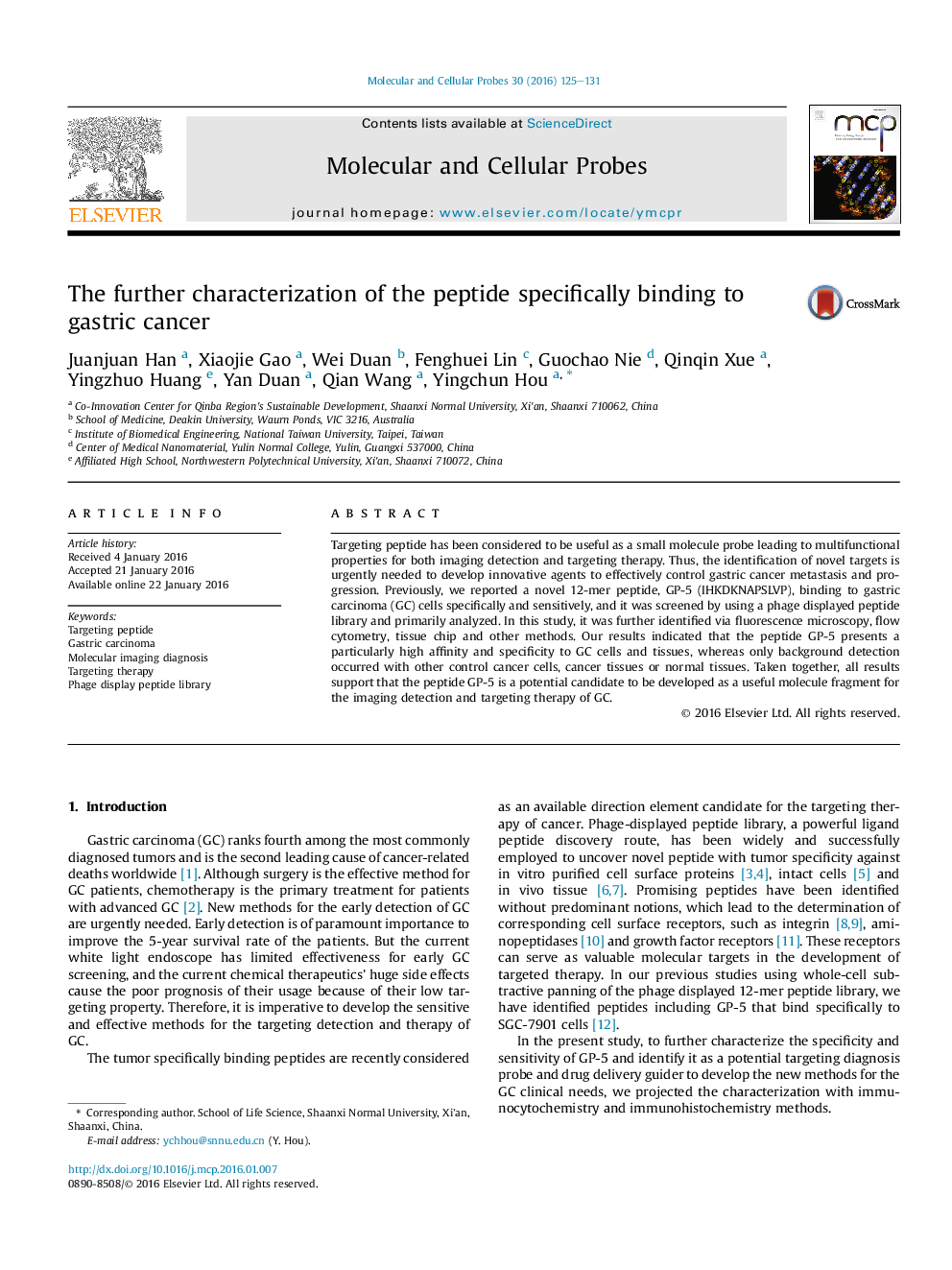| Article ID | Journal | Published Year | Pages | File Type |
|---|---|---|---|---|
| 2199583 | Molecular and Cellular Probes | 2016 | 7 Pages |
•The targeting detection and therapy are important needs to improve current clinical treatments of cancers, and for that, finding the specific and sensitive molecular fragment is an effective approach.•Juanjuan Han et al. screened a gastric cancer specifically binding peptide from a 12 mer peptide library.•Their results indicate this peptide with the specific and sensitive affinity to gastric cancer by its targeting to gastric cancer cells and tissues comparing with the cells and tissues from other cancers or normal controls.•The results support this peptide as potential candidate to be used to the targeting detection, drug delivery and therapy of gastric cancer.
Targeting peptide has been considered to be useful as a small molecule probe leading to multifunctional properties for both imaging detection and targeting therapy. Thus, the identification of novel targets is urgently needed to develop innovative agents to effectively control gastric cancer metastasis and progression. Previously, we reported a novel 12-mer peptide, GP-5 (IHKDKNAPSLVP), binding to gastric carcinoma (GC) cells specifically and sensitively, and it was screened by using a phage displayed peptide library and primarily analyzed. In this study, it was further identified via fluorescence microscopy, flow cytometry, tissue chip and other methods. Our results indicated that the peptide GP-5 presents a particularly high affinity and specificity to GC cells and tissues, whereas only background detection occurred with other control cancer cells, cancer tissues or normal tissues. Taken together, all results support that the peptide GP-5 is a potential candidate to be developed as a useful molecule fragment for the imaging detection and targeting therapy of GC.
